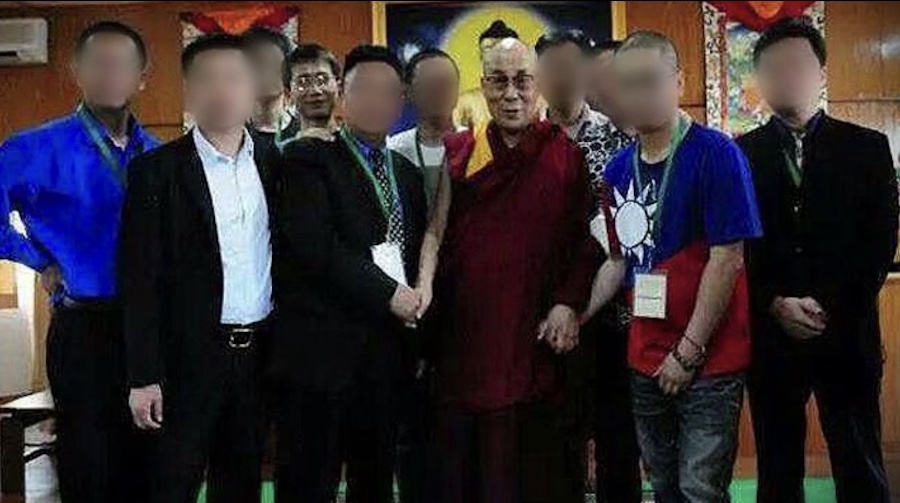Tibetan websites in the People’s Republic of China (PRC) are no longer a rare phenomenon. They represent the emergence of a new breed of young educated Tibetans who have learned to take advantage of electronic communication technology. They make a conscious and concerted effort to use the Tibetan language as their medium of communication and display an unprecedented audacity in discussing topics that are largely proscribed by the Chinese authorities. The principal objective of these websites is to disseminate a range of information about Tibet and encourage the exchange of opinions on issues and events that concern the Tibetan people. They are at the forefront of a collective effort to build a virtual public space for carrying out a critical discourse on Tibet that the state apparatus leaves no place for in the physical world.
The websites generally consist of different sections that are subdivided into forums. Within these forums, topics ranging from socio-cultural issues and current affairs to literature and romance are discussed. Although these forums individually deserve further examination, a cursory browse through them reveals that the recurring themes and the main driving force behind their writings are a common concern and passion for the Tibetan people and their culture.
Although the conversation threads vary, what features most frequently is a preoccupation with the interest and welfare of Tibetans as a marginalised people. Declarations of national pride are combined with ruminations about how to embrace modern progress without compromising Tibetan cultural and historical heritage. One forum commentator, Wind-horse, (Tib: Lungta; thin paper sheets imprinted with prayers and divine images usually scattered to the wind on mountain passes so as to carry blessings) typifies this prevailing nationalist sentiment as he ends every remark he makes by the following statement: “We must raise high the glorious banner of the past Tibet of warrior kings and triumph magnificently in the harrowing battlefield of today”. Tibet’s heroic past is frequently evoked in this way to hammer home the message that Tibetans, as a resourceful and resolute people, can free themselves from their current predicament.
The usernames forum contributors adopt are revealing in their own right as they are either used to underline Tibetan identity or to celebrate their love for Tibet, for example: Highland Cuckoo, Wind-horse, Plateau Resurrection, Yak-hair, Nomadic Mastiff, Snowlion, Wild Yak and so on. Most of the contributors stress the importance of a common Tibetan culture, language and history, and call for Tibetan solidarity so as to guarantee their survival at this critical time in their nation’s history. Their aspiration is a unified Tibet, consisting of the three traditional Tibetan provinces, U-Tsang, Kham and Amdo, that would preserve and promote its cultural heritage, whilst welcoming modern education and scientific technology in order to move forward.
Forum participators not only openly call for Tibetan unity in their struggle to preserve their culture but they also openly express their reverence and obedience to their exiled leader, the Dalai Lama. They display this allegiance by using both symbolic, as well as clearly unambiguous language in their online conversations. This is evident in the comments posted following the recent movement where wildlife skins, used to trim traditional Tibetan costumes, have been publicly burned. Many criticise the local authorities in Rebkong (Qinghai) for prohibiting the burnings and draw attention to the hypocrisy of the Chinese government for advocating environmental policies without ever implementing them. “What is justice? We poor Tibetans!” bemoans Yak-hair in a mixture of self-consolation and sarcasm. Questioning Chinese legitimacy, Tibetan reasons: “His Holiness’s speech is the main factor that launched this campaign of burning fur-trimmings and it is not a sudden realisation of environmental awareness on the side of the Tibetans. This campaign therefore shows that His Holiness commands the unalloyed loyalty and respect of the Tibetan people. The Chinese government also issues environmental directives but with little effect. Why, then, have they repressed this unprecedented campaign?” Expressions of loyalty to the Dalai Lama are not confined to words alone as photos of him preaching at the recent Kalachakra have been posted in one chat room to the delight of fellow participants.
Despite their unique content and the courage of their contributors, it is questionable how long such websites will continue avoiding punishment or prohibition. The efficient Chinese internet censorship doubtless monitors them regularly. Web users are aware of the great risks entailed in their undertaking, but seem to be determined to test the authorities with youthful and patriotic zeal. Whereas the invasion of 1951, the Great Leap Forward and the Cultural Revolution traumatised their parents, the new generation is not shackled by the terror of such great socio-political upheavals. Their experience, education and ingenuity have enabled them to seize the opportunity facilitated by new communication technologies to discuss the state of their nation with fellow Tibetans. However, because these websites are claimed to have been established for the sake of the Tibetan people, many are concerned about their durability. Anxious about the future of his site, a webmaster urged his fellow contributors to be vigilant of unlawful remarks that could undermine the security and longevity of the website and consequently issued a set of rules. A contributor expresses his agreement by calling others to abide by the rules but concludes his statement with a defiant slogan: “May Tibet Never Perish!” Such exchanges demonstrate an awareness of the practical necessity to act within the Chinese legal system, but also the rebellious nature of this young generation that continues to push the boundaries of the system.









